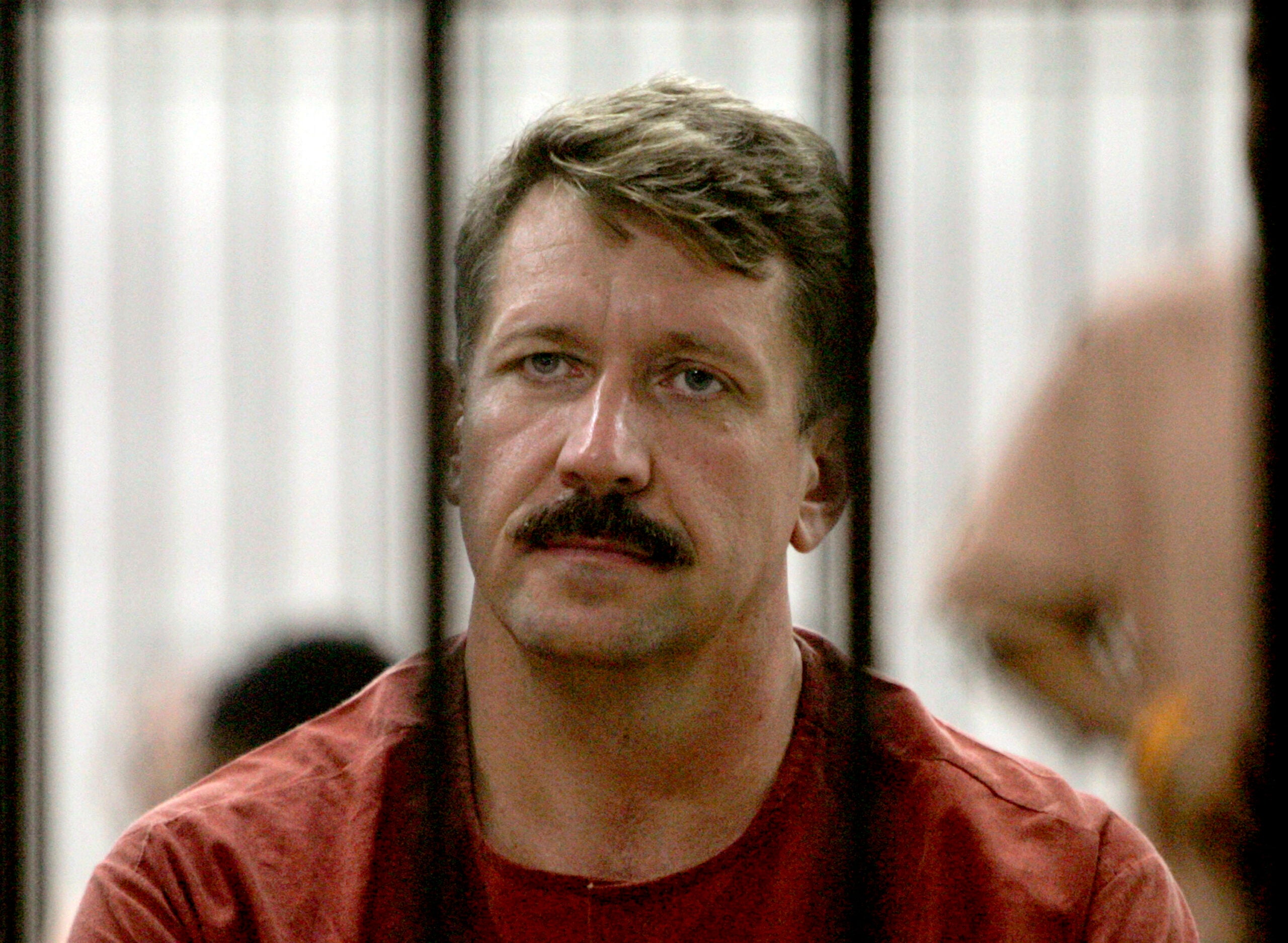Viktor Anatolyevich Bout, a former Soviet military translator, rose to infamy as one of the world’s most notorious arms dealers in the 1990s and early 2000s. Bout, known by the chilling moniker “Merchant of Death,” used his extensive network of companies to smuggle weapons from Eastern Europe to conflict zones in Africa and the Middle East, fueling bloody civil wars and bypassing international embargoes.
Bout’s Early Life and Military Career

Born in 1967 in Dushanbe, Tajikistan, Bout served in the Soviet military as a translator, honing his language skills in English, French, Portuguese, and other languages. After the collapse of the Soviet Union, Bout seized the opportunity to acquire surplus military equipment, including several Antonov An-12 aircraft, which he used to launch his arms dealing empire.
The Rise of the “Merchant of Death”
Bout’s vast network of companies, including Air Cess, Bukavu Aviation Transport, and Centrafrican Airlines, allowed him to smuggle weapons to various conflict zones with ease. He supplied arms to both sides of bloody civil wars in Angola, the Democratic Republic of Congo, Liberia, and Sierra Leone, earning him the moniker “Merchant of Death” from British Foreign Office minister Peter Hain in 2000.
Bout’s Clientele and Modus Operandi

Bout’s clientele included notorious figures such as Liberian dictator Charles Taylor, Angolan rebel leader Jonas Savimbi, and the Taliban in Afghanistan. He used his fleet of aging Soviet-era cargo planes to transport weapons and ammunition, often disguising his illicit cargo as humanitarian aid.
The Downfall of the “Merchant of Death”
In 2008, Bout’s luck ran out when he was arrested in Bangkok, Thailand, in a sting operation conducted by the U.S. Drug Enforcement Administration (DEA)
Bout had been lured to Thailand by DEA informants posing as representatives of the Revolutionary Armed Forces of Colombia (FARC), a designated terrorist organization
Bout’s Arrest and Extradition

Bout was arrested at a luxury hotel in Bangkok, where he had agreed to meet with the DEA informants to discuss a deal to sell them millions of dollars’ worth of weapons, including surface-to-air missiles, machine guns, and sniper rifles. The U.S. government requested his extradition, which was granted by the Supreme Court of Thailand in 2010.
The Trial and Conviction of Viktor Bout
In 2011, Bout was convicted by a federal court in Manhattan on charges of conspiracy to kill Americans, delivery of anti-aircraft missiles, and providing aid to a terrorist organization. Prosecutors argued that Bout was ready to sell up to $20 million in weapons, including surface-to-air missiles intended to shoot down U.S. helicopters.
The Sentence and Imprisonment
In April 2012, Bout was sentenced to the minimum 25 years in prison by U.S. District Judge Shira Scheindlin, who acknowledged that the sentence was mandatory despite her belief that Bout had already served enough time. Bout was incarcerated at the United States Penitentiary, Marion in Illinois until his release in 2022.
The “Lord of War” and Viktor Bout’s Legacy
Bout’s exploits inspired the 2005 film “Lord of War,” starring Nicolas Cage as a fictionalized version of the arms dealer. The movie loosely follows Bout’s rise and fall, although in the Hollywood version, the protagonist manages to evade capture by U.S. authorities.
Bout’s Denial of Charges and Support in Russia
Throughout his trial and imprisonment, Bout maintained his innocence, claiming he was a legitimate businessman wrongly accused. In Russia, he enjoyed support from high-level officials and had his paintings displayed in the country’s Civic Chamber in 2021.
The Prisoner Exchange and Viktor Bout’s Release
In December 2022, after serving 10 years of his 25-year sentence, Viktor Bout was released in a high-profile prisoner exchange between the United States and Russia. In exchange for Bout’s freedom, the U.S. released WNBA star Brittney Griner, who had been sentenced to 9 years in prison for bringing cannabis oil into Russia.
Bout’s Return to Russia and Political Aspirations
Upon his return to Russia, Viktor Bout joined the Liberal Democratic Party and ran for a seat in the Legislative Assembly of Ulyanovsk Oblast in 2023. His release and subsequent political involvement have sparked controversy, with some critics arguing that the exchange was a win for Russia and a blow to U.S. efforts to combat international arms trafficking.
Conclusion
The story of Viktor Bout, the “Merchant of Death,” serves as a cautionary tale about the devastating impact of the illegal arms trade on global stability and security. Bout’s ability to evade authorities for years and supply weapons to some of the world’s most notorious groups highlights the need for stronger international cooperation and enforcement of arms embargoes. As Bout embarks on a new chapter in Russia, the legacy of his crimes and the lives they affected will continue to reverberate for years to come.
